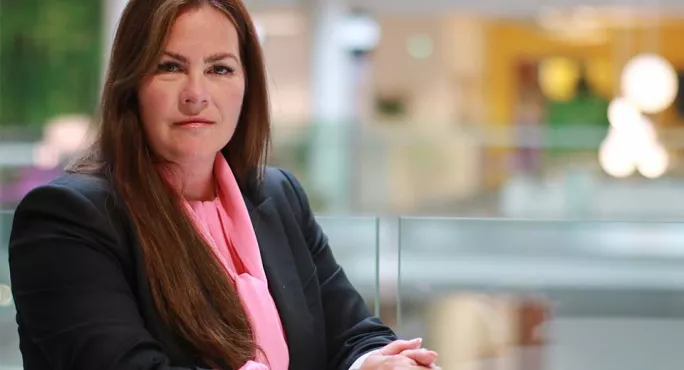Advance information issued by exam boards to help students sitting papers this summer, after having their learning disrupted during the pandemic, may not have been as helpful in practice, says Ofqual’s chief regulator.
Speaking to school leaders at the Confederation of School Trusts (CST) conference this morning, Dr Jo Saxton said that it gave them “just one other thing to think about”.
Dr Saxton talked about her initial views on how the first exams to be sat for two years have gone, and how she expects aspects, such as grading scales, to evolve in future series in a wide-ranging speech in Birmingham this morning.
Here’s everything you need to know.
Addressing disadvantage is a key part of her job
Dr Saxton said that she saw it as a “key part” of her job to address “disadvantage” in exams.
She said: “I see it as my job to make sure that no student is disadvantaged by a maths question that relies on your understanding of seat names in a theatre or that your ability to be assessed in a foreign language doesn’t hinge on whether or not you know the etiquette of a skiing trip.”
The comment appeared to be pointed in part at an AQA German oral exam from 2019, which was criticised for referring to skiing holidays.
Students have sometimes found advance information ‘another thing to think about’
For this exam series, advance information on GCSE and A levels was published by boards to help focus revision after pandemic disruption.
Dr Saxton said that, after speaking to students, she had been given a mixed response about this.
She said: “They love the idea of advance information, but the reality is that they found navigating it, in many cases, just one other thing to think about.”
Recent cases of students being asked exam questions on information not listed in advance materials have emerged as exam season has got well underway.
AQA apologised last week after a GCSE physics exam included a question on a topic that was not in the advanced information.
This will be one of the most ‘generous’ exam grading series ever
Dr Saxton said that exam grading this year would be one of the most “generous” in history, as Ofqual did not want to go from 2021 grading back to 2019 levels in “one fell swoop”.
Top grades reached record highs last year after exams were cancelled for the second successive year.
But Dr Saxton warned that schools that do better than last year would be “few and far between”, adding “if any” - in comments similar to ones she gave in a podcast interview last month.
‘Don’t throw babies out with the bath water’ when reforming exams
Dr Saxton acknowledged that exams would be changing over the coming years.
She said: “I’ve said before that it’s a case of when, not if, we move towards online assessment.”
But she added that some things would not change, saying: “We must not throw out babies with the bath water. I can tell you now that handwriting is here to stay.”
‘Discussions to be had’ on grading scales
Changes to exam grading scales in the future could be possible, said Dr Saxton.
Concluding her speech she said: “What else do I see for the future? I think there’s an interesting question to be had about grading scales.
She then discussed level 3 qualifications, and the review of qualifications, and asked: “How many different grading scales is it reasonable for a society to operate?”
She later questioned whether existing grading scales worked, referencing GCSE’s numerical grading system and adding: “Should the highest number always be used for the highest grade? This is a discussion I’d like to have.”
GCSEs are currently graded 1-9, with 9 being the highest and 1 the lowest. A levels still use letter grades.




